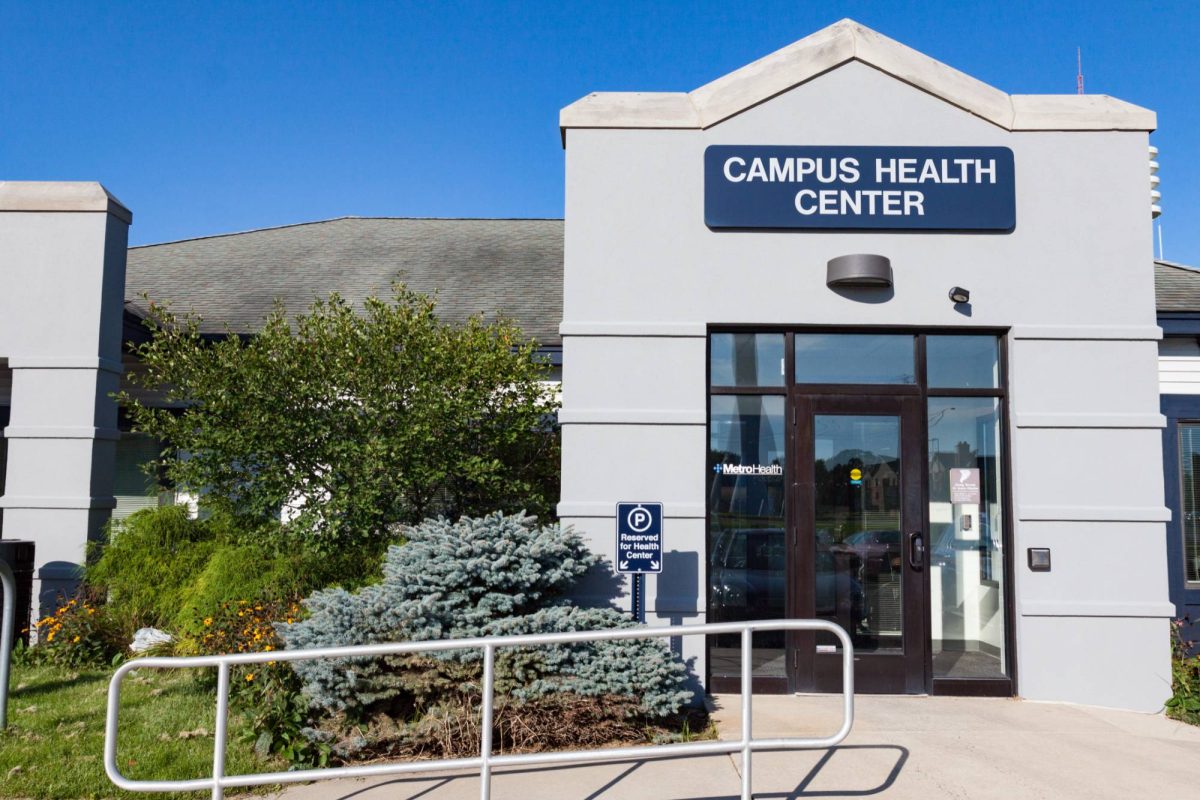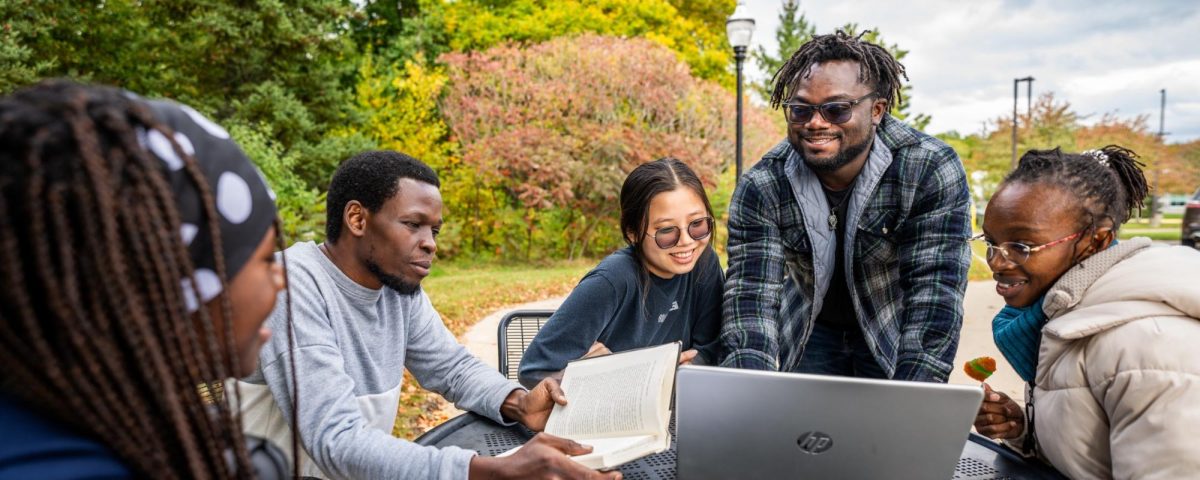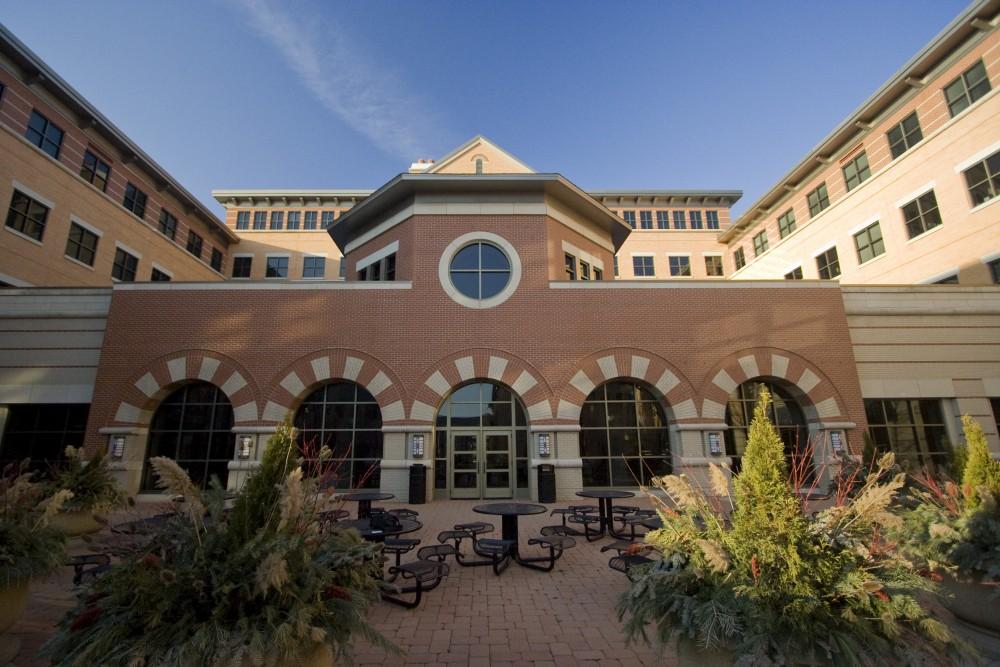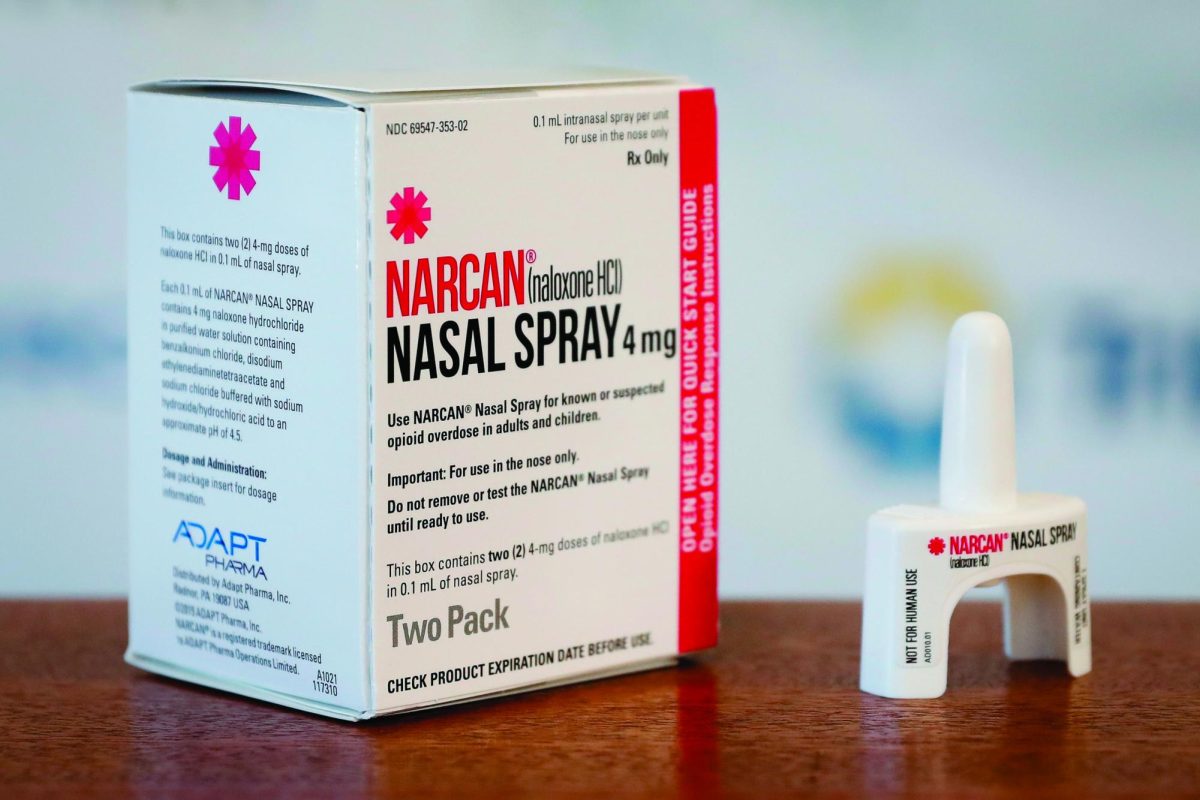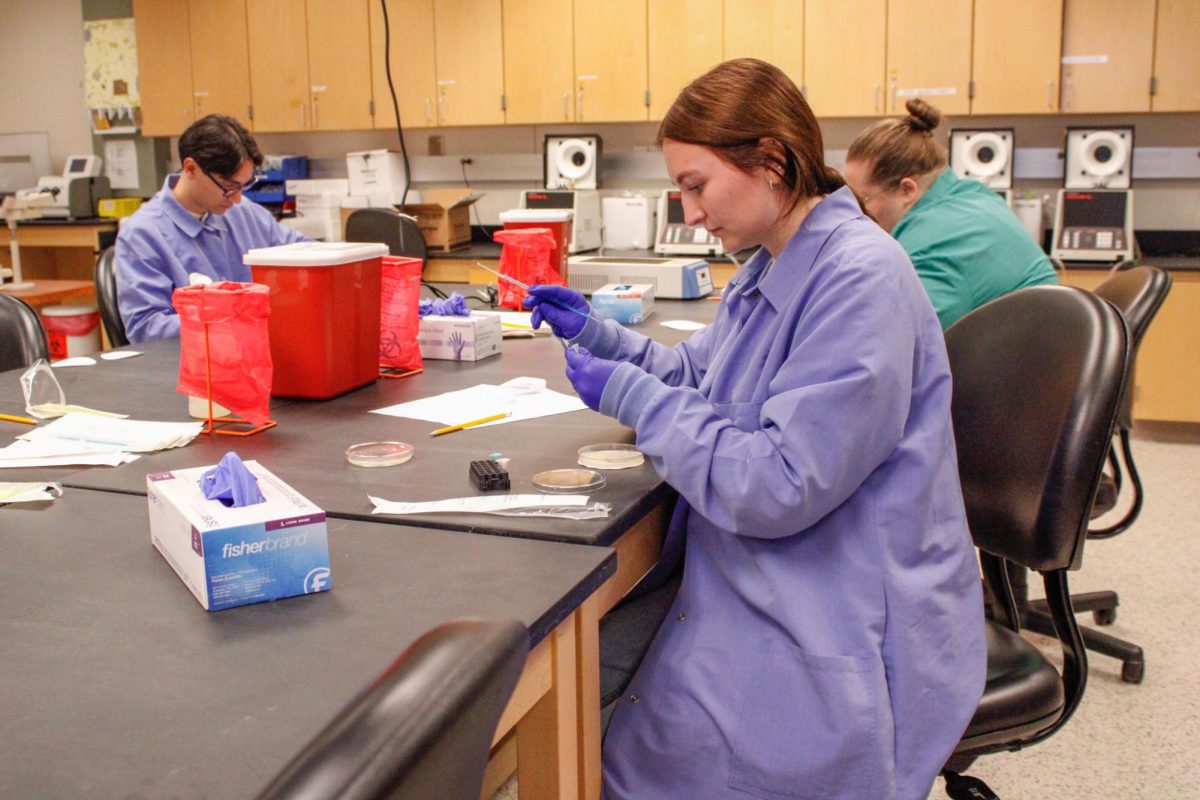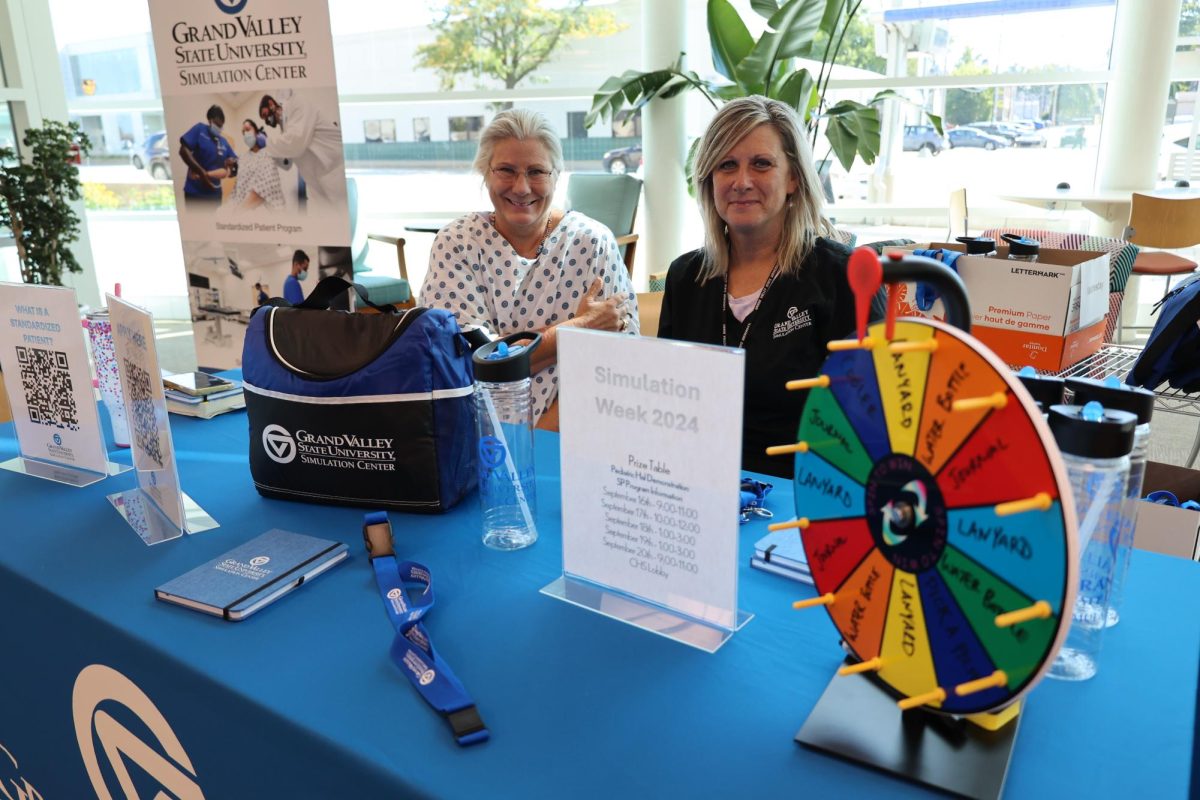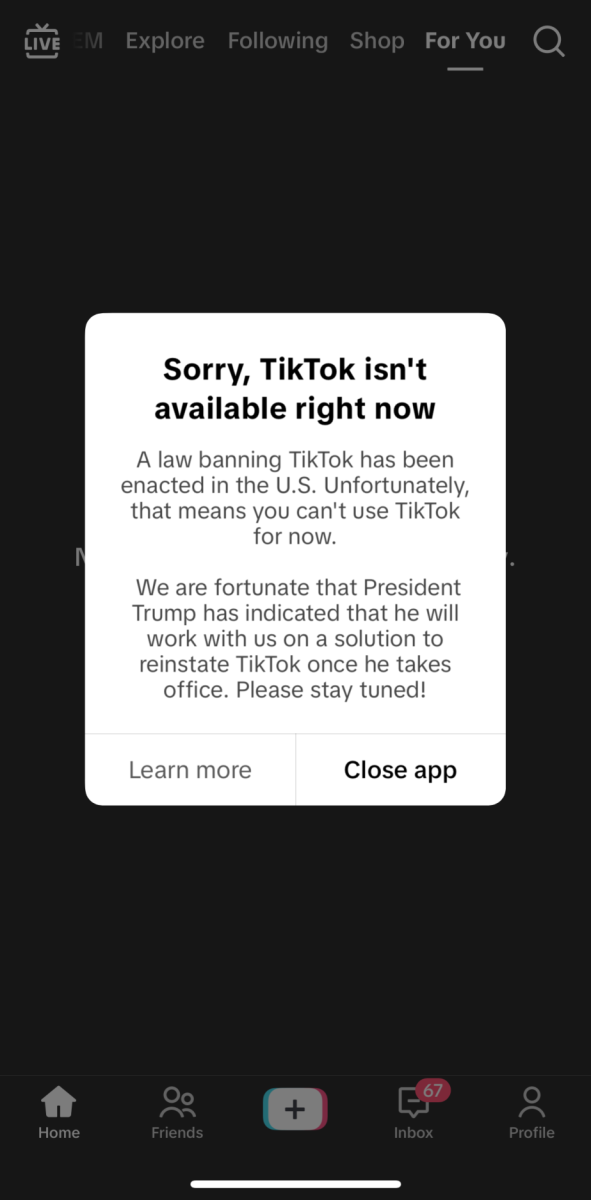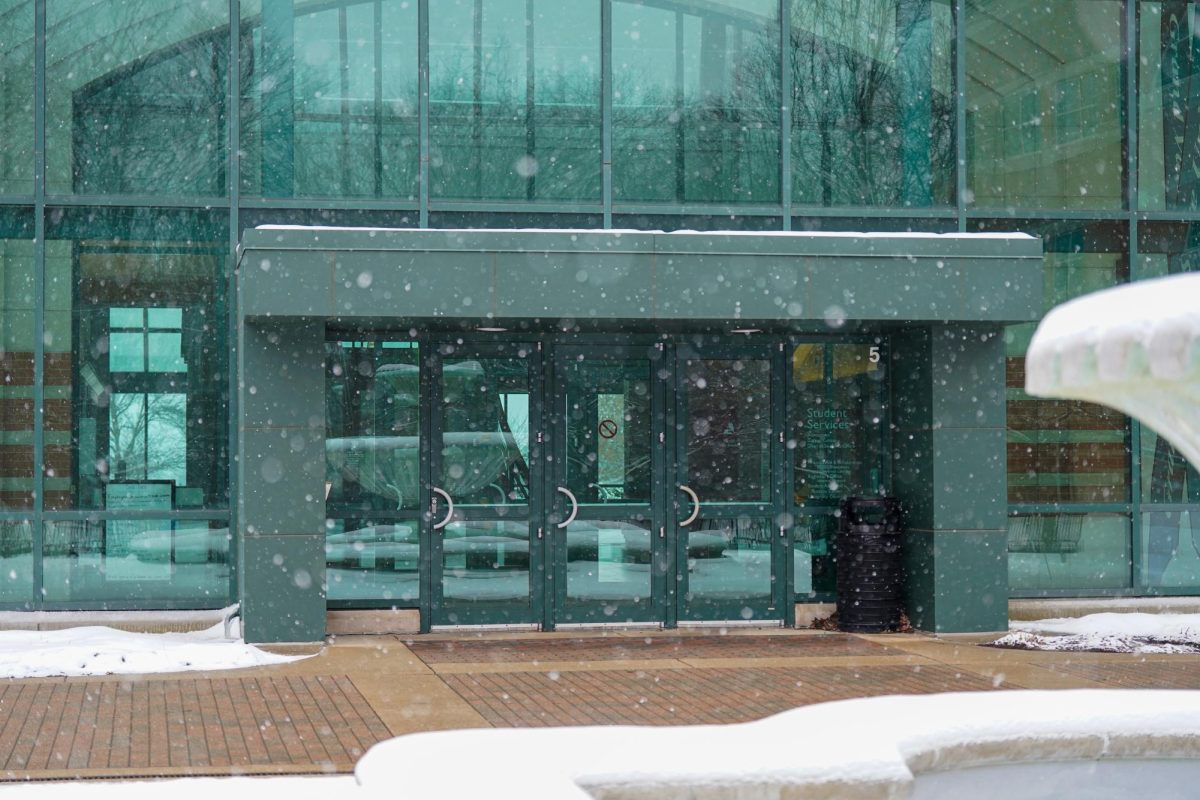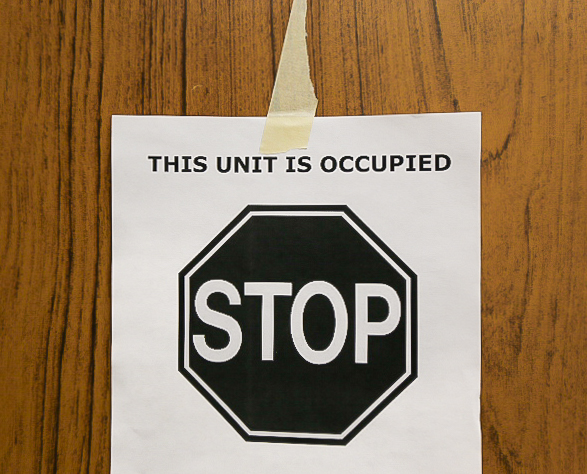The U.S. Food and Drug Association (FDA) approved another COVID-19 vaccine for individuals six months and older in response to remaining concerns about the late-stage pandemic.
Despite new developments and treatments becoming widely available, another wave of the illness is spreading again. This new vaccine, designed to combat the XBB.1.5 variant, is touted by experts as being effective against other existing strains of the virus as well.
Amy Ferdinandt Stolley, an associate professor in the writing department at Grand Valley State University, had a recent infection during the late-stage pandemic.
“I believe I contracted COVID over Labor Day weekend, though I’m not sure exactly the source,” Stolley said. “This was my first COVID illness, and I was sick for about six days.”
Stolley had gone a long time without contracting the illness and was fully up to date with vaccines and boosters. But it isn’t always enough.
“I was more surprised that I had gone as long as I had without getting COVID than I was to actually get it,” Stolley said. “I took a lot of precautions, especially during the first two years of the pandemic, but it felt almost inevitable that I would get it at some point.”
Medical personnel have their own concerns about the late-stage pandemic. Gary Detweiler, a Family Medicine Physician Assistant-Certified, has his own practice in Sparta while also working for GVSU’s Student Health Services. He said convenience seems to be a factor of the new vaccine. For those who haven’t yet gotten a vaccine, this new inoculation is designed to keep people up-to-date on their COVID-19 vaccination, providing a wide range of coverage against the aforementioned variants.
“The more recent vaccine was made with the idea of having better coverage of the more recent variants,” Detweiler said. “If you have not received the vaccine, this new one would be a single dose, and you would then be considered up to date. The original vaccine was two doses with Pfizer. This one is a single dose, it also does have any coverage for the original COVID-virus.”
The majority of the country seems to be experiencing some level of immunity from the virus, though even low-risk individuals are susceptible to very serious health consequences as a result of contracting it.
For Detweiler, the reality of herd immunity doesn’t take away from the danger of the virus. He said our GVSU community is very mobile, which makes it difficult for true immunity to exist.
“Our herd is constantly moving,” Detweiler said. “So take a campus like Grand Valley, and you’ve got students coming from literally all over the world and so those people may have had COVID-19 with a variant that is no longer circulating. People here are vulnerable to that. Protection wanes over time, so there is no lifetime protection.”
Despite new variants and vaccines constantly changing, Detweiler does believe we are in a much better situation than in the past. He said the greater number of people receiving the vaccination has been extremely helpful, as well as treatments for the virus being much more effective than they’d been in 2020. He predicts there will be a new vaccine each year to target the more common variants, similar to the flu vaccinations.
For those who are concerned about their children receiving vaccinations against COVID-19, Detweiler said they should consider the level of thought, consideration and scientific studies that have been put into these inoculations.
“I don’t personally have children, but I would not hesitate at this point to get my children vaccinated,” he said. “We have seen very few serious adverse reactions in younger children. The biggest endorsement I can give, as a medical professional, is that I have received the vaccines and the boosters, and I plan to receive the next booster that comes out.”
Working in the campus health clinic once a week, Detweiler is pleased to see a large number of students taking the virus seriously.
“I see that a number of the students have been vaccinated, and I think that’s great,” Detweiler said. “We’re talking about a population that is living together, working together, going to classes together and spending time together oftentimes in close quarters. The virus spreads very quickly in a setting like that.”
He predicts the new vaccine will be available as soon as next week. He plans to get it and recommends students do the same.




